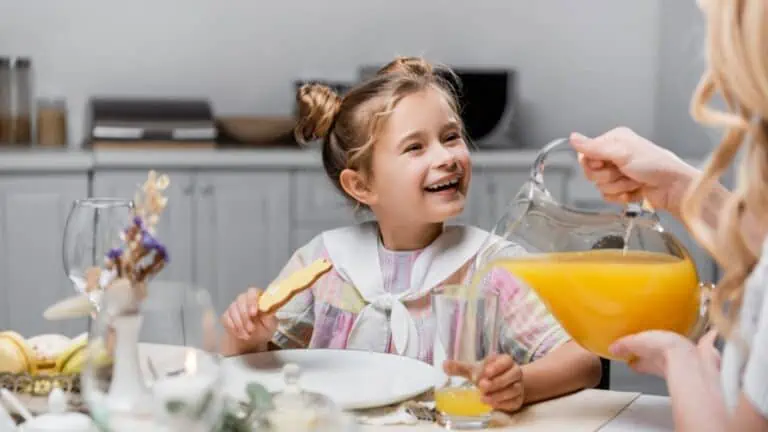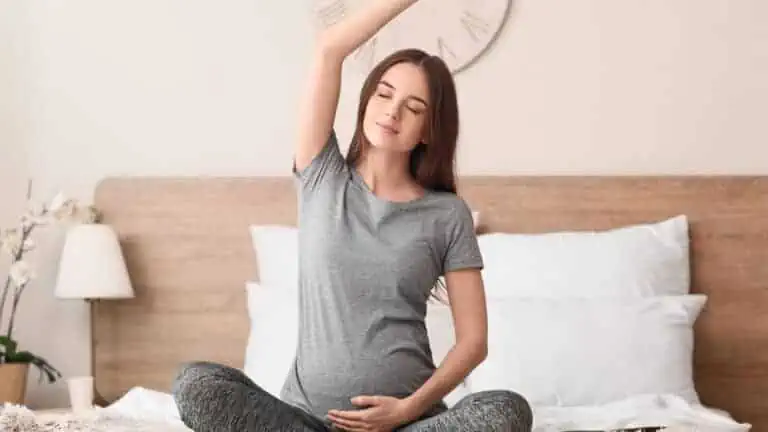15 Ways Being a Minimalist Can Improve Your Life
This post may contain affiliate links. As an Amazon Associate, I earn from qualifying purchases.
Many people are turning to a minimalist lifestyle to help improve their mood, boost their productivity and build stronger relationships with their family and friends.
Minimalism is a wide-ranging concept that doesn’t have a rigid set of rules but instead uses guiding principles to challenge people to question their purchasing behaviors so that they can understand what has actual value in their life and what doesn’t.
For many people, becoming a minimalist has massively improved their lives.
What Is Minimalism?
There are a lot of different definitions of minimalism, but broadly, it is a lifestyle where you only keep the things in life which add value or meaning, and you declutter or remove everything else. The purpose is to get rid of any distractions, stop chasing a lifestyle of buying things you don’t need, and increase the amount of time that you have to yourself. Ultimately, it’s about making life easier and yourself happier in the process.
Minimalism is not emptying your home as much as possible to create physical space. You don’t have to throw out that prized collection of books or your selection of scented candles just because you’re trying to be ‘minimalist.’
An item has a purpose if it is helpful, but it also has a purpose if it brings you joy, pleasure, or comfort. A photograph of your family does not have practical use, but it nourishes you emotionally. So, you must define ‘purpose’ with minimalism.
It is about being deliberate with your home and life and cutting out what you don’t need to help clear your literal space and your headspace.
How To Get Started With Minimalism
To some, getting started with minimalism can feel overwhelming.
However, if you want to embrace minimalist living, you must start. And there are two key areas to focus on:
- Getting rid of your existing clutter
- Putting new habits into place to stop you from acquiring more things you don’t need
The transformation into a minimalist lifestyle won’t happen overnight, so feel free to take your time and work room by room. However, you need to ensure you have those new habits in place, too; otherwise, you’ll clear out a space, and then while you work on another, you’ll fill that first room back up with new things.
When buying something, ask yourself:
- Is this essential?
- What value does it add to my life?
- How will I feel if I don’t buy this?
By making the simple change to question yourself over your buying decisions, you’ll build the proper habits to make the minimalist approach become second nature.
15 Benefits of Minimalism
Choosing minimalism can offer a wide range of benefits to your life. You may notice a change immediately, although some will take time to set in.
1. Increase your happiness and satisfaction with life
One of the biggest reasons people adopt a minimalist mindset is because it makes it easier to enjoy life. You can focus more on richer experiences and suppress the urge to fill your home with possessions. This simpler life is appealing and, for some people, even spiritually rewarding.
2. Improve your relationships with your family and friends
At the base level of just having less stuff in your home, you will have fewer distractions and, therefore, can build deeper relationships with your loved ones. The time you can now focus on them instead of on the things you own will be extremely valuable.
Taking the concept of minimalism to another level, you can also examine your bonds with people and remove any toxic relationships that don’t add value.
3. Enjoy more free space in your home
Owning fewer possessions means having more free space in your home. The aesthetics of this alone are pleasing, but it also means you can be creative with the blank canvas you’ll now have – add more items that provide value or downsize your home. A tiny home can feel huge with minimalist interiors.
4. Sleep better and feel more energetic
Removing the clutter from your life can be very soothing, and this can help you to enjoy quality sleep at night. You’ll enjoy great peace of mind, with fewer harmful distractions as you wind down for sleep, helping to set you up for the best rest possible. In turn, this means more energy for the things you find valuable during the day.
5. Enhance your creativity
Owning too many things can stifle your inspiration and easily distract you. Removing these obstacles can free up your creative self, allowing you to explore your hobbies and artistic flair. You could even put this time towards creating minimal art pieces that give you personal satisfaction and value.
6. Improve your productivity and focus
Again, when you have fewer distractions in your home, you will benefit from a freer mind, and part of that will mean you can be more productive. A cluttered home is filled with procrastination potential, whereas a minimalist home is perfect for routine and focus.
7. Spend less money
You will likely buy fewer things when you make the positive change to try a minimalist lifestyle. You shouldn’t be spending as much money on new possessions because you’ll only be purchasing those items that give you value.
8. Buy higher quality products
While you’re buying fewer material possessions, your bank account will grow. And this means that thanks to minimalism, you’ll have more money to spend on the things you still need to buy, whether it’s pantry staples or larger furnishings like stylish sofas. The stuff you acquire can be much higher quality, whether it’s everyday necessities or the more significant buys in life.
9. Spend less time losing things around your home
It may seem trivial, but don’t let the five to ten minutes a day you spend looking for lost items fool you. They add up quickly. The average American spends 2.5 days every year looking for misplaced items. That adds up to over 192 days if you live the average American lifespan of 77 years. Fewer purchases mean less stuff filling your home, fewer places for things to hide, and spending your time on more important and enjoyable things than locating lost items.
10. Lower your stress and anxiety levels
Studies have shown that a minimalist life approach can help lower cortisol in your body. Cortisol is a hormone that triggers stress and anxiety, and excessive levels can cause severe conditions such as depression, weight gain, and even heart disease.
11. Stop comparing your success with others
Many people spend a lot of time comparing their achievements and failures to those of their friends and family. They frequently base these comparisons on possessions – who has the bigger house, the newer car, and so on. This isn’t healthy, but minimalism helps to negate these feelings, again making you happier.
12. Less cleaning and tidying around the home
Very few people actively enjoy cleaning and tidying, and if you choose a minimalist approach for your home, you won’t have as much to do. According to the National Soap and Detergent Association, decluttering can reduce the amount of housework in the average home by 40%. Fewer objects mean fewer things to put in their place or to attract dust, so less cleaning is needed.
13. Lower your impact on the environment
Minimalism also benefits sustainability. Every time you make any kind of purchase, you’re impacting the environment. Old products go into landfill, new products have the packaging, and there’s the cost of picking them up or shipping them to you.
14. Kids enjoy a higher quality of play
One specifically for the parents here, but it’s been shown that children with fewer toys tend to get more enjoyment out of them. This isn’t about depriving your kids but making sure you don’t paralyze them with too many choices. A smaller selection not only helps kids be more imaginative but also makes the job of toy organization a lot easier.
15. Make healthier food choices
Being minimalistic around the home means organizing everything, including your fridge and pantry. When you don’t keep stockpiles of wasted items, and everything is arranged correctly, it becomes easier to make healthier food choices. Your brain is more relaxed and willing to choose the more nutritious options if they are prominent and easy to reach.
What Are The Challenges of Minimalism?
There are several challenges to minimalism – it is not something you can typically transition into immediately without any barriers or bumps in the road.
Some of the more significant challenges include the following:
- It can be hard to let go of things you own, especially if you’ve had them for a long time
- Retailers are very good at marketing and making you want something you don’t really need
- It can be time-consuming to remove the clutter from your life
- It is a never-ending process that you must commit to for it to work
If you brace yourself for these challenges, then you can overcome them. But always keep being positive in your approach if you want to be successful.
Is It Cheaper To Be a Minimalist?
It can be cheaper to be a minimalist, but only sometimes. It depends on what you decide adds value to your life. Returning to the record collection example – if you have an expensive record collection that brings value and meaning to your life, you may want to keep building that collection but use minimalism to remove other distractions.
That’s a good way of approaching it, but you may not save much money, especially if any cash you save on other things just gets poured into buying more records. Alternatively, you might use the money you save to buy better versions of the essentials you would be buying anyway.
Minimalism can be a cheaper lifestyle. If you stick to it and are strict, you won’t buy as many possessions and can save money.
Are Minimalists Actually Happier?
A minimalist life is not suitable for everyone. Some people prefer the dopamine hit of making purchases and owning fancy things, and that’s fine.
But many people will find that taking the minimalist approach to life boosts their happiness. It helps to reduce stress and allows people to focus on what is more important to them in life, appreciating relationships and experiences more.
If you think a minimalist life could suit you, why not start small and try one room in your home? If you feel happier when you finish that room, you can expand it to the rest of your home and see how much better you feel once you have decluttered your life.
This article originally appeared on Wealth of Geeks.







